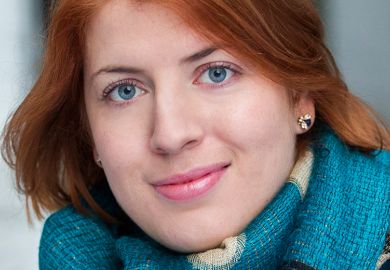What sorts of books inspired you as a child?
Books about young people going on adventures and books that take you to a different time or place. Probably William Goldman’s The Princess Bride was one of my favourites growing up, but I also loved fantasy novels. Another favourite was Madeleine L’Engle’s A Wrinkle in Time.
Your new book touches on the fierce debates around hyphen usage. What books would you recommend on the politics of punctuation?
Cecelia Watson’s Semicolon: The Past, Present and Future of a Misunderstood Mark, Keith Houston’s Shady Characters: The Secret Life of Punctuation, Symbols, and Other Typographic Marks and Amanda Montell’s Wordslut: A Feminist Guide to Taking Back the English Language. I also love Lynne Truss’ Eats, Shoots & Leaves: The Zero Tolerance Approach to Punctuation.
The heart of the book, however, is about your own and others’ experiences of being ‘hyphenated Americans’. Which accounts offer particularly rich insights into the complexities – and pleasures – of this status?
I think that fiction does a great job of bringing you into the world of the hyphenated. One of the first books that got me thinking about this was Amy Tan’s The Joy Luck Club and I found that it so resonated with me. I also love Isabel Allende’s books because she dives deeply into the richness of hyphenated life. In Hyphen, I quote Laura Esquivel’s Like Water for Chocolate a great deal and that is another book that is terrific in exploring the hyphenated life. I also just finished reading Luster by Raven Leilani and loved it. Leilani grapples with the multi-hyphenated life in importantly intersectional ways.
Where should people go to learn more about the experiences of Iranian-Americans like yourself?
There has been a burst of memoirs by Iranian-Americans about the experiences of living betwixt and between two countries that are sworn enemies. My favourite memoirist is Jasmin Darznik, author of The Good Daughter: A Memoir of My Mother’s Hidden Life, but Lipstick Jihad: A Memoir of Growing up Iranian in America and American in Iran by Azadeh Moaveni is another great read.
What is the last book you gave as a gift, and to whom?
Can I pick two? Because I gave two gifts yesterday! I gave The Sum of Us: What Racism Costs Everyone and How We Can Prosper Together by Heather McGhee to one of my favourite writers and friends, Kyle Jensen. Kyle is the director of writing at Arizona State University and has been a major influence on my writing process and style. We had been talking about justice-focused books and I recommended McGhee’s work to him. Surprisingly (given that he owns so many books!) he didn’t own it, so I gifted him one. I also just bought Shahnameh For Kids: The Bravery of Gordafarid for my kids because it is an English translation of one of the greatest Iranian stories ever told.
What books do you have on your desk waiting to be read?
So many! The two I am going to read first are: Lose Your Mother: A Journey Along the Atlantic Slave Route by Saidiya Hartman and Everything Is Illuminated by Jonathan Safran Foer. I also heard Sally Rooney has a new book coming out and I can’t wait to get my hands on that!
Pardis Mahdavi is dean of social sciences at Arizona State University. Her latest book is Hyphen (2021), in the Bloomsbury Object Lessons series.
Register to continue
Why register?
- Registration is free and only takes a moment
- Once registered, you can read 3 articles a month
- Sign up for our newsletter
Subscribe
Or subscribe for unlimited access to:
- Unlimited access to news, views, insights & reviews
- Digital editions
- Digital access to THE’s university and college rankings analysis
Already registered or a current subscriber?






